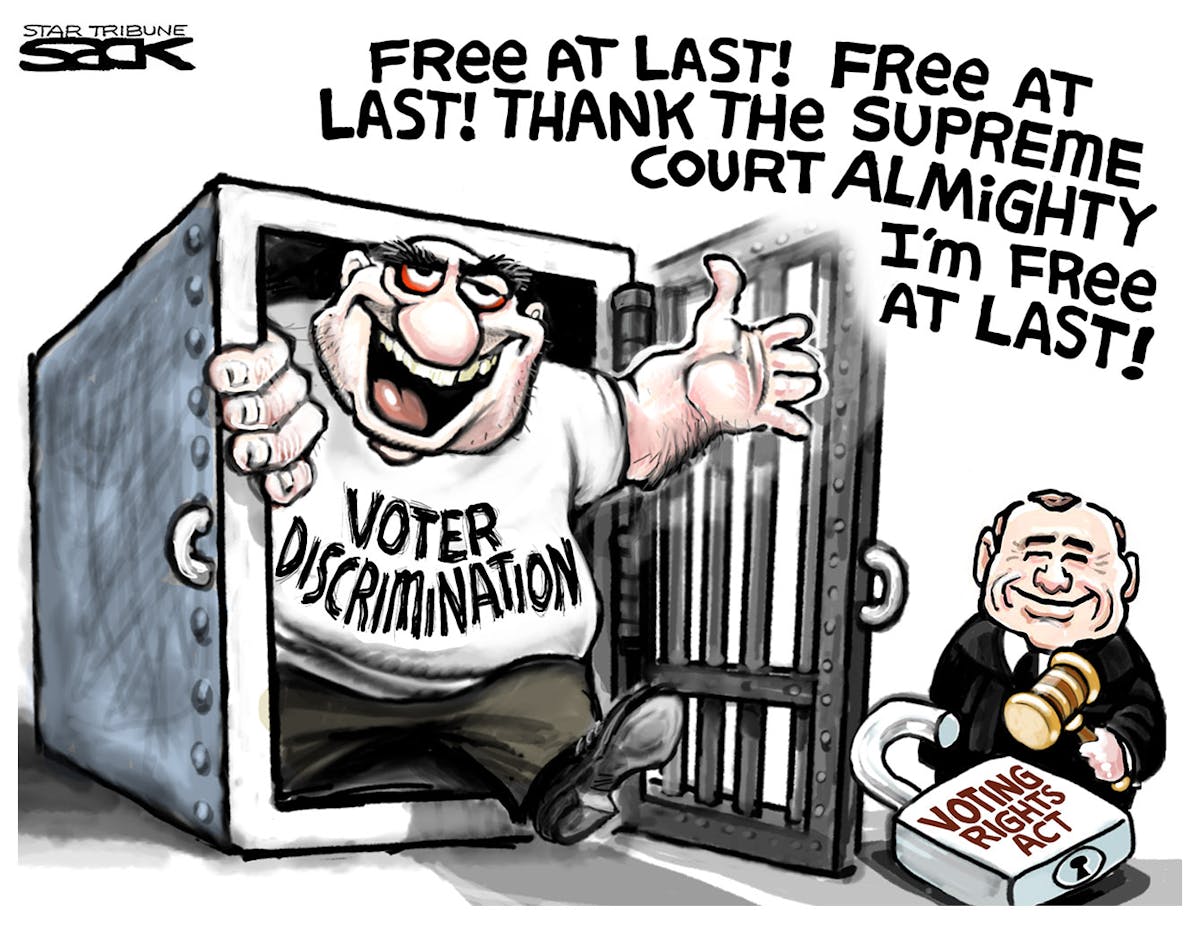The rumble in the vicinity of Lakewood Cemetery in Minneapolis Tuesday morning likely was Hubert Humphrey rolling in his grave. With a 5-4 ruling, the U.S. Supreme Court dismembered the 1965 Voting Rights Act, for which Humphrey crusaded as both Minnesota's U.S. senator and vice president.
We doubt that Humphrey would say today that the law has outlived its usefulness, or that states that spent 175 years denying African-Americans the right to vote can now be trusted to protect it.
Those are our doubts, too. Granted, things have changed for the better in the states of the old Confederacy that Congress singled out 48 years ago for federal oversight of their voting laws. (Until Tuesday, the law covered all or parts of 15 states.) But change appears to have come because of federal vigilance, not despite it.
The number of Department of Justice interventions to block proposed voting law changes in those states — 31 since the law's extension in 2006, according to a report by the Brennan Center for Justice — suggests that a federal watch is still warranted. As dissenting Justice Sonia Sotomayor said during oral arguments to the attorney for Shelby County, Ala., which brought the case decided by the high court Tuesday, while "some portions of the South have changed, your county pretty much hasn't." Shelby County has lost 240 voting discrimination cases since the law's enactment, she noted.
But the effect of the position taken by Chief Justice John Roberts and the four associates who composed Tuesday's majority is to tell the South that it is once again on its own to run elections, as it was before 1965. For the sake of a version of states' rights, the court majority is lessening the voting rights protections that brought millions of nonwhite Americans into what Humphrey called in 1948 "the bright sunshine of human rights."
In finding unconstitutional the formula used to decide which states require federal "preclearance," Roberts, writing for the majority, said that the 2006 Congress relied too heavily on outdated information. "Congress may draft another formula based on current conditions," he allowed — perhaps to give readers a chortle. No one familiar with today's dysfunctional Congress looks for any such move anytime soon.
But Humphrey would note that the U.S. Senate he joined in 1949 was where civil-rights bills went to die. Fifteen years later, he was the floor general for the 1964 Civil Rights Act, which shares billing with the 1965 Voting Rights Act as the 20th century's fulfillment of the Constitution's promise of equal protection under the law, regardless of race.
If the American people believe that voting is the bedrock right of all citizens — and not a "racial entitlement," as Justice Antonin Scalia shockingly said of the Voting Rights Act during oral arguments — then they will eventually compel Congress to repair the breach that the high court inflicted. When it does, it will need to consider remedies for systemic vote suppression along racial lines in places far removed from the Old South. Indeed, the racial gap in voter registration in Minnesota might come under scrutiny, as a New York Times analysis recently suggested.
It may take another civil-rights movement to get the legislative branch to budge. But a new generation of Americans — the baby boomers' children — is emerging, with deeper awareness than their elders have evinced that racial diversity makes this nation stronger. Tuesday's high court ruling should tell them that securing the right to vote in America is unfinished work worthy of their participation.
-----------
A Star Tribune editorial. Follow the editorial board on Twitter | Facebook | Pinterest | Google+


